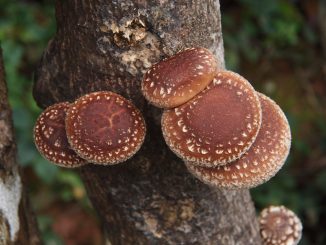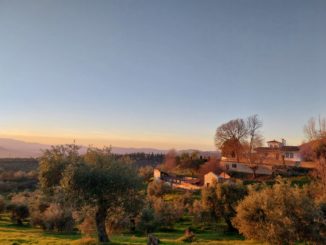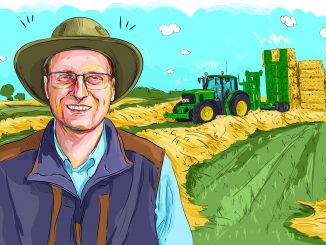
As a Hungarian not-for-profit company, the Environmental Social Science Research Group (ESSRG) cultivates and promotes cross-border and transdisciplinary research, engaging in a democratic multi-actor dialogue with the natural and social sciences as well as other knowledge systems. In this article ESSRG, reports on the renewed interest – and importance – of short and local distribution channels, which are better able to meet the growing demand for alternative grains in Europe. A perfect introduction to the recently released film True Bread, produced by ESSRG, telling the story of small-scale farmers, millers, and bakers in Hungary gathering to restore coherent collaboration.
Alternative grains are becoming increasingly crucial in transforming the food system as producers and consumers appreciate the value of biodiverse, organic, and agroecological produce.
In this context, there is a growing recognition of the significance of alternative grain networks and value chains that offer local, heritage, and landrace cereal varieties to meet consumer demands for healthier, more nutritious, and ecologically sustainable food options. This trend highlights the increased acknowledgement of value chains using local agricultural biodiversity to supply food products.
COACHing a better future for grains

For some years now, ESSRG has been developing the COACH project, a research project on collaborative agri-food chains funded by the European Union’s Horizon2020 research and innovation programme.
In the midst of the COVID-19 pandemic and unprecedented global supply disruptions, the COACH project looked at local food systems and short supply chains operating in the EU, recorded their experiences and monitored food prices. People’s need for greater resilience also calls for an urgent transformation to more localised food provisioning that already feeds the dominant part of the population while using a relatively low level of our agricultural land and resources. Fresh, nutritious, ecologically benign, and culturally appropriate foods at affordable prices are often part of these territorial food systems, entirely below the current infrastructural and policy funding radar.
The Soviet planned economy wiped out many indigenous wheat varieties in the 1960s, but the Biological Farming Association Ekana, rooted in Georgia, aims to save them. Small and medium farmers are reintroducing these varieties into fields for local and commercial consumption.

Last year’s Elkana’s Bread Festival attracted 4-5000 attendees, showcasing traditional regional products and promoting agritourism. The event featured local cuisine, traditional handicrafts, cultural performances, and a photo contest. The event details were shared through various media channels, and interviews were conducted with producers and consumers.
At the Festival, a separate space was dedicated to Georgian wheat. Guests had a chance to taste various locally baked breads and local products. Special prizes were awarded to the producers of Akhaltsikhe “Tsiteli Doli” (“Red wheat”) and owners of agrotourism farms.
The event also hosted a photo exhibition – “Samtskhe-Javakheti – Infinity in Variety,” where the best photos included in the photo contest – Yourshot Georgia, organised with National Geographic, were presented.
Another initiative contributing to restore and develop heirloom varieties is the Hungarian Farmer-Miller-Baker Network. This network reconnects farmers, millers, bakers, and researchers in Hungary to re-establish historically broken local supply chains. The focus is on artisanal bakery products made with stone-milled flour from landrace and heritage cereals, a unique approach in the Hungarian context.
To spotlight their much needed work, ESSRG produced a short film in the framework of the COACH Project, which can be viewed freely.
Taking the next step
ESSRG developed an online course within the COACH project on alternative grain networks to encourage and empower new and already operating actors to participate actively in developing collaborative grain economies.
By taking the course, you will discover the fundamentals and benefits of alternative grains. You can learn about some of the most important difficulties current initiatives face and gain inspiration from the innovative and inventive ways they collaborate.

You are invited to be part of a live and growing network of enthusiastic and dedicated people, farmers, millers, bakers, brewers, etc. — as well as conscious consumers from various parts of Europe who are, in one way or another, contributing to creating healthier, more just, and more resilient food systems.
For example, the Belgian Granennetwerk is a collaborative initiative that shortens and strengthens the link between farmer and brewer and provides fair pricing and stability for those involved. Cereals, including heritage varieties, are grown locally using agroecological practices.
Gran Prato in Italy is a regional and collaborative cereal supply chain initiative to re-localise and promote grain production to support traditional, equitable, and sustainable practices.
To learn more visit alternative grain networks on Urgenci’s website
Do the course – take an online course on alternative grains.
More
A Leek for Change! The Belgian Trio on a Mission to Save Seeds
Târ y donc a tori – Lessons on the Subversive Nature of Transmission, from a Stubborn Welshman
Feeding Ourselves 2024 – A Food Revolution Starts With Seed!
Seeds of Europe – Centering Small Producers’ Voices in Seed Law Reform
Letter From The Farm | Cooking With The Lights Off – Ingredients of Rural Resilience





